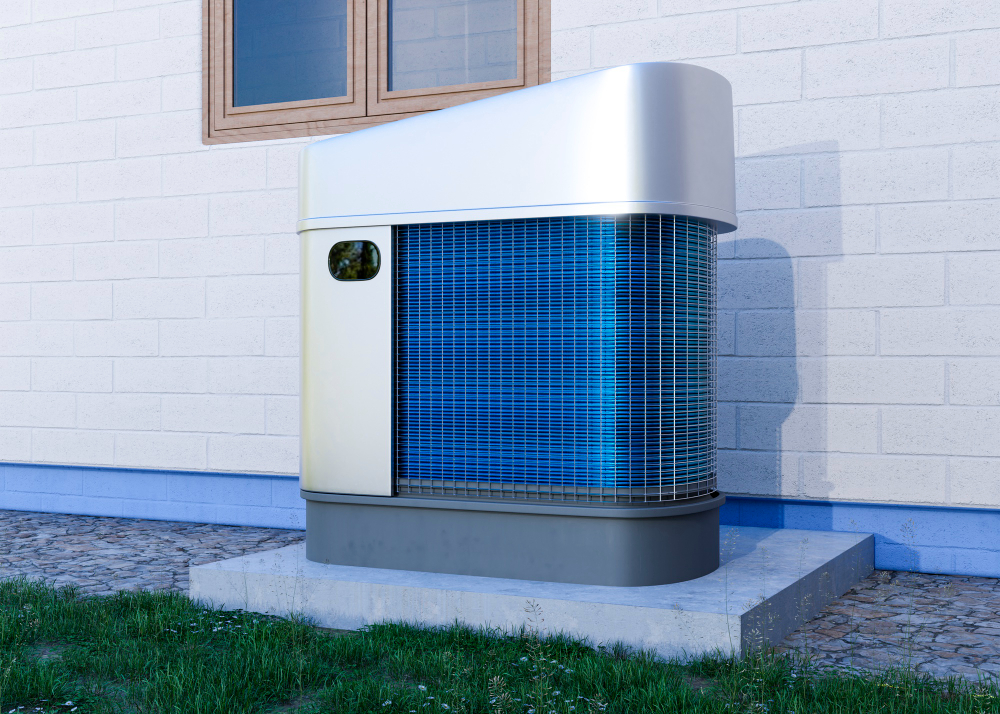The world of home heating options has evolved significantly in recent years, offering homeowners a variety of choices to keep their living spaces comfortable. Among the contenders, air source heat pumps (ASHPs) and traditional heating systems such as gas boilers are two popular options. Understanding the differences between these systems and their respective advantages can help homeowners make an informed decision.
Table of Contents
Learn About Air Source Heat Pumps
Air source heat pumps work by extracting heat from the outside air and converting it into usable heat for your home. If you want to learn about air source heat pumps, lets start with the basics. They are a type of renewable energy technology, which makes them a highly sustainable heating option. In contrast, traditional heating systems such as gas, oil, or electric boilers generate heat by burning fossil fuels or using electricity directly.
One of the significant benefits of air source heat pumps is their efficiency. They can produce more heat energy than the electrical energy they consume, often achieving efficiencies of 300% or more. This means that for every unit of electricity used, an air source heat pump can generate up to three units of heat. Traditional heating systems typically operate at around 90% efficiency, meaning they convert 90% of the fuel they consume into heat.
Environmental Impact
When considering the environmental impact of heating systems, air source heat pumps come out on top. They rely on electricity, which can potentially be derived from renewable sources such as wind or solar power. As the energy grid becomes greener, the environmental benefits of air source heat pumps will continue to improve.
On the other hand, traditional heating systems are reliant on fossil fuels, which release carbon dioxide and other harmful emissions into the atmosphere. With climate change becoming an increasingly pressing issue, reducing your home’s carbon footprint is an essential consideration.
Installation and Maintenance
Installing an air source heat pump can be more complex and expensive than installing a traditional gas boiler. The initial costs can include the purchase of the unit, labor, and possibly modifications to your home’s insulation and heating system. However, the long-term savings on energy bills and potential government incentives can offset these upfront costs.
Maintenance for air source heat pumps is relatively straightforward; they require annual servicing to ensure optimal performance, similar to traditional boilers. However, gas boilers can be prone to more issues, such as leaks or component failures, potentially leading to more frequent repairs.
Operational Costs
When it comes to operational costs, air source heat pumps can offer substantial savings, particularly in well-insulated homes. They are most effective in delivering low-temperature, consistent heating over long periods, making them ideal for homes with underfloor heating systems or large radiators.
Traditional heating systems, while cheaper to install, can be more expensive to run due to fluctuating fuel prices. Gas and oil prices can be volatile, and electric boilers, though easier to install, are often costly to operate. In contrast, air source heat pumps use electricity more efficiently, providing a more predictable and potentially lower operating cost.
Suitability for Your Home
The suitability of an air source heat pump versus a traditional heating system depends on various factors specific to your home. Homes with good insulation and appropriate space for the outdoor unit can benefit significantly from an air source heat pump. They are particularly effective in milder climates, where the temperature doesn’t drop too low too often.
Traditional heating systems, however, can be more straightforward to implement in homes that are less well-insulated or in colder climates where demand for high-temperature heat is more consistent. Additionally, existing homes with an established gas or oil boiler system may find it easier and more cost-effective to replace like-for-like instead of investing in a heat pump.
Conclusion
Both air source heat pumps and traditional heating systems have their unique advantages and disadvantages. Air source heat pumps offer impressive efficiency, lower environmental impact, and potential long-term savings but come with higher initial costs and are best suited for well-insulated homes. Traditional heating systems are easier to install and can be more effective in certain environments, but they come with higher operating costs and a larger carbon footprint.
When deciding which system is best for your home, consider your specific needs, the physical characteristics of your property, and your long-term goals in terms of sustainability and cost. Consulting with a heating specialist to assess your home’s suitability can provide valuable insights and help you make an educated decision.




